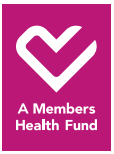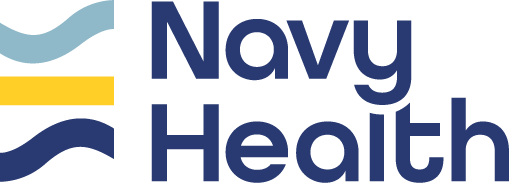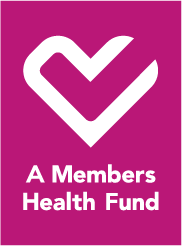Undergoing surgery can be a daunting experience, and while the focus is often on the procedure itself, recovery is a critical part of the process that shouldn’t be overlooked. At Navy Health, we aim to support our members throughout their recovery, providing guidance on what to expect and how to manage the post-surgery period effectively. Understanding the recovery process not only helps reduce anxiety but also ensures you can navigate any challenges that arise, both physical and mental.
Importance of Discussing Recovery with Your Doctor
Before surgery, it’s important to have an open conversation with your doctor about what to expect during recovery. Many patients focus on the surgery itself, without giving enough thought to what happens afterward. However, being aware of potential physical and mental challenges is crucial to reducing stress and having a smooth recovery. To begin this conversation with your doctor, consider asking the following questions:
How long will I need to stay in the hospital after surgery?
Can you provide me with a discharge plan?
What should I do to care for my wound?
Will I need any prescribed medications?
Are follow-up appointments required, and when?
How long should I expect to take before returning to full health?
Are there any additional services or support available to assist my recovery?
Understanding the recovery process upfront allows you to prepare, set realistic expectations, and reduce uncertainty. While it’s important to follow your doctor’s advice, below are some general guidelines to support your recovery.
Follow Your Discharge Plan
One of the most important steps in recovery is adhering to the discharge plan provided by your doctor. This plan will outline essential information about wound care, medication, and follow-up appointments.
For wound care, you may need to keep the area dry and clean, apply any prescribed creams and change any bandages as required. Your healthcare team will guide you on how to do this, but it’s always a good idea to ask for further clarification if needed.
If medication is prescribed, make sure you follow the dosage instructions carefully. Pain management is a critical part of recovery, but it’s equally important to avoid misuse. Ensure you stick to the medication schedule as advised and consult your doctor if you have concerns about side effects or dosage.
Your follow-up appointments are another essential aspect of recovery. These appointments allow your doctor to monitor your progress and ensure everything is healing as expected. Knowing what will be assessed at these appointments can give you a better sense of how your recovery is progressing and what to expect moving forward.
Refuel Your Body
Proper nutrition plays an important role in your recovery. After surgery, it’s common to experience a reduced appetite, especially if anaesthesia was involved. However, giving your body the nutrients it needs is essential for the healing process.
Staying hydrated is one of the first steps in recovery. After surgery, it’s best to start with small sips of water and gradually increase your intake, aiming for around 8 to 10 glasses of water per day. Another option for hydration is sports drinks. Brands like Gatorade and Powerade are specifically designed to provide the right balance of carbohydrate, electrolytes and fluid to adequately provide fluid for hydration.
In terms of food, maintaining a balanced and healthy diet is important. Focus on consuming high-protein options like fish, chicken, or even peanut butter, as these help to rebuild tissues and muscles. High-fiber foods, such as whole grains, fruits, and vegetables, can also aid digestion, reducing the risk of constipation and preventing strain during bowel movements. While your appetite may take time to fully return, incorporating these nutritious elements into your meals will support your body’s recovery.
Listen to Your Body
Listening to your body is another important factor in recovery. A common mistake people make is pushing themselves to get active too quickly after surgery, which can lead to complications or slower healing. Depending on the type of surgery, it’s important to allow enough time for rest and heal before attempting any strenuous activity.
That said, movement is also a key part of the healing process. Once you feel ready, light activities such as short walks can promote blood flow, which is essential for wound healing and maintaining muscle strength. However, it’s important to pace yourself and increase activity levels gradually. Recovery timelines will vary depending on the individual and the procedure, but it can generally take between one to three weeks to return to normal activity.
Avoid Mental Fatigue and Boredom
Surgery recovery doesn’t just involve your body, it involves your mind as well. Prolonged rest can sometimes lead to feelings of boredom, which may negatively affect your mental health and slow down your physical recovery. It’s a good idea to keep your mind engaged during this time.
One way to avoid boredom is by finding activities that are mentally stimulating but not physically taxing. This could include watching a new TV series, reading a book, or pursuing a hobby such as painting or knitting. Planning a trip or activity for when you feel better can also provide a sense of excitement and motivation during your recovery. Maintaining a positive mental state is crucial to ensuring your overall well-being.
It’s important to recognise that recovery from surgery isn’t a linear process, and everyone’s experiences will differ. Staying vigilant about your progress, watching for any signs of complications like infection or unusual pain, and maintaining regular communication with your doctor are key to navigating this period effectively. If anything feels off during your recovery, seek medical advice immediately.
By combining the right physical care, a balanced diet, proper activity levels, and mental engagement, you can navigate post-surgery recovery with confidence. Taking an informed and proactive approach allows for a smoother recovery and quicker return to health.
1. I’m ready to go home | Safer Care Victoria
2. 8 Mistakes After Surgery That Slow Your Recovery (webmd.com)
3. Recovery After Surgery: Simple Ways to Improve Healing (verywellhealth.com)
4. Recovering after cancer surgery – Cancer Council Victoria (cancervic.org.au)
5. Sports Drinks – Sports Dietitians Australia (SDA)







